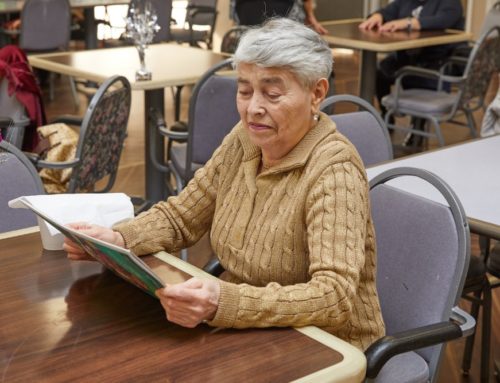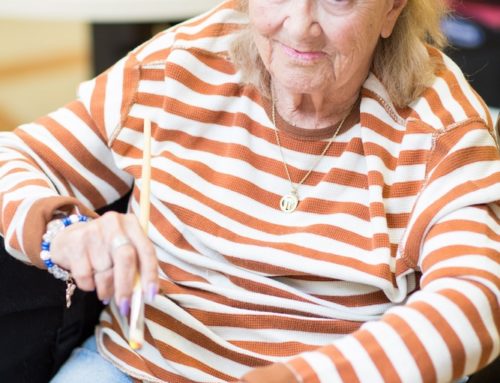Friendships is Extremely Important for Older People
Social connections have no age barrier, but older people often lose those childhood friendships over time. People drift apart or pass on without new friendships to replace those we’ve lost. Losing those connections affects us in unexpected ways, including altering our physical and mental health. We become isolated, depressed, and anxious, causing us to pull away from remaining friends in a vicious cycle of loneliness.
Adult day care centers offer solutions for those wishing to avoid the consequences of isolation. These centers offer socialization in the form of recreational activities, outings, dinners, and numerous classes. You can participate in those you already enjoy or try something new, meeting like-minded individuals at the same time.

Though millions of older people live alone, many still have an active social life than includes friendship and socialization. Unfortunately, those lacking such support systems aren’t just dealing with loneliness. Several health conditions, like heart disease, high blood pressure, obesity, depression, and cognitive decline, are linked to isolation. Those enjoying meaningful social interactions experience the opposite, so let’s take a look at the many benefits of senior friendships.
Benefits of Friendship for Older People
Brain stimulation
Recent studies discuss the relationship between mental stimulation and how the brain ages. Individuals who spend more time engaging in intelligent conversations or activities show signs of slower cognitive aging. Such activities include playing games, problem-solving, or engaging in thought-provoking conversations.
The combination of socializing and stimulation may even maintain cognitive functions. In fact, friendships for older people may even reduce the progression of neurological issues, including Alzheimer’s. When lacking positive social interactions, the risk for cognitive decline increases, so stay in touch with your loved ones.
Emotional support enhances longevity
Everyone needs a support system to help them through the tough times. For seniors experiencing financial concerns, the loss of loved ones, reduced independence, and frequent medical issues, emotional support is vital. As well as having someone to share their fears with, older people require friendship to feel loved and needed.
Studies even show that positive emotional support for seniors also increases longevity. Their coping skills and outlook improve while physical, psychological, and social issues decrease.
Emotional support can come from various sources, including family, friends, caregivers, support groups, and mental health professionals. Each plays a role in creating a network of care that helps seniors navigate the challenges associated with the loss of independence.
More opportunities for learning and growth
Seniors have more time on their hands, though they may not know what to do with it. Luckily, several senior programs are available that encourage socialization while learning new skills or activities. Though you can attend with those you know, older people often establish new friendships during such engagements.
Some options include social clubs for your favorite hobbies or educational lectures and classes to learn something new. You can also try cognitive enrichment programs for sharpening your mind or fitness classes to stay active.
Maintaining independence
The loss of independence is part of aging due to health concerns or lack of transportation. But staying connected with those close to you allows you to retain some of your autonomy. Every friendship an older person maintains prevents loneliness and boosts self-worth.
Technology also helps since it allows seniors to stay in touch with friends and family, no matter where they are. They can even connect with those around the world, fostering new relationships. These devices even allow them to manage their homes and call for help with the touch of a button.
The fear of losing independence is a significant concern for older people due to a number of reasons and emotional, psychological, social, and practical factors.
independence allows elderly people to make their own choices about their lives, from daily routines to major life decisions. Losing this autonomy can make them feel like they have no control over their circumstances, which can be deeply unsettling. Friendships help older people mitigate the fear of losing independence by providing emotional support, enhancing self-esteem, and promoting a sense of belonging and purpose.
Losing sense of self-esteem
Many associate this independence with their identity and self-worth. The ability to care for yourself and live independently is often tied to people’s sense of dignity and self-esteem. Losing independence can feel like losing a part of oneself. This is important for both adults and seniors.
No-one wants to rely on others for basic needs. This can create feelings of vulnerability and helplessness. Seniors may worry about being a burden on their family or friends, leading to feelings of guilt or shame.
Resources:
- National Institute on Aging, April 23, 2019, Social isolation, loneliness in older people pose health risks https://www.nia.nih.gov/news/social-isolation-loneliness-older-people-pose-health-risks
- National Center for Biotechnology Information (NCBI), Social Engagement and Cognition https://www.ncbi.nlm.nih.gov/books/NBK83766/
- PennState, Socializing may improve older adults’ cognitive function in daily life https://www.psu.edu/news/research/story/socializing-may-improve-older-adults-cognitive-function-daily-life/
- NCBI, October 4, 2023, Factors influencing emotional support of older adults living in the community: a scoping review protocol https://www.ncbi.nlm.nih.gov/pmc/articles/PMC10548654/
- Walden University, Aging Well: Helping the Elderly Maintain Independence https://www.waldenu.edu/online-doctoral-programs/phd-in-human-services/resource/helping-the-elderly-maintain-independence
This article is for educational and informational purpose only and does not substitute for professional medical advice. For any questions about your own health condition, speak to a qualified physician or healthcare provider.







Leave A Comment